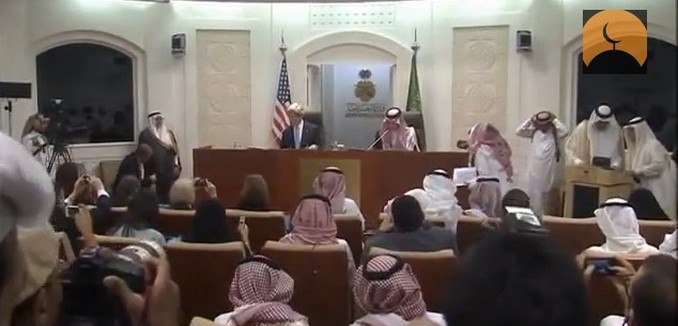Saudi Arabia is blasting Iran for using negotiations to stall for time while Tehran advances its atomic program, echoing recent statements made by U.S., E.U, and U.N. diplomats, Israeli officials, the head of the IAEA, and top U.S. military officials. Saudi Foreign Minister Saud al-Faisal made the point while hosting his American counterpart John Kerry:
Certainly, negotiations must end at a specific time. We must have serious and rational discussions and put clear commitments in front of everyone. Negotiations must be serious to the extent possible, where intentions and motives are expressed in order to resolve the issue. These factors are not satisfied by the Iranians, as they did not show any party their seriousness in these negotiations. They continued negotiations just to reach more and more negotiations in the future. If such negotiations continued, we will see ourselves in front of a nuclear weapon, but we cannot allow this to happen.
The criticism of open-ended negotiations was echoed in the press conference by Kerry, who insisted that talks have to be “finite.”
Iran’s Arab neighbors have for years been quietly pushing for forceful action against what is widely perceived to be an Iranian drive to develop nuclear weapons. Wikileaks cables show that Saudi officials privately urged the U.S. to attack Iran as far back as 2010. Two years later the United Arab Emirates Ambassador to the United States said publicly stated that the benefits to bombing Iran outweighed the costs. A new poll published this week showed the majority of Arabs polled believe Iranian nuclear weapons acquisition would make the region less secure.
Arab states fear that Tehran will use the immunity granted by nuclear weapons to press its regional territorial claims, which encompass the entire nation of Bahrain. The GCC has blasted Iran for working to destabilize Arab regimes several times in recent months.
[Photo: Muslim Voice / YouTube]




